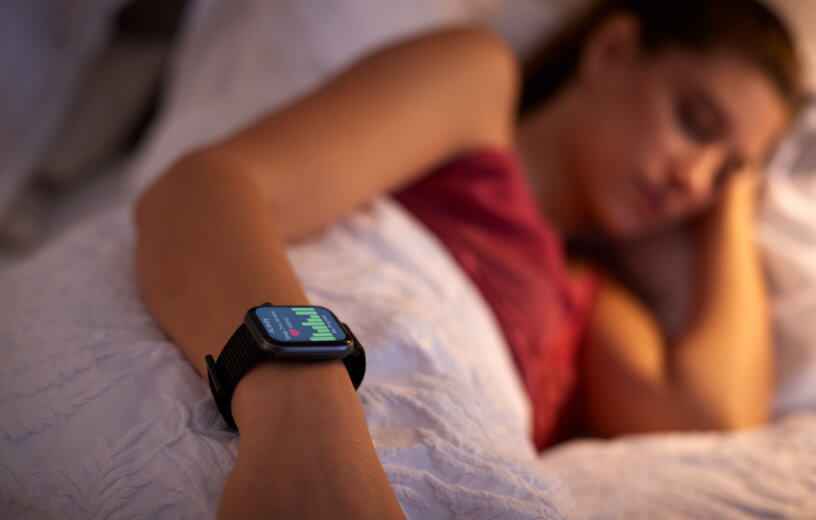CHICAGO — Can’t get a good night’s sleep? Investing in a sleep tracker may seem like a smart idea, but scientists warn the devices may only make your situation worse.
A 2017 study out of Rush University Medical Center finds that sleep trackers — which monitor your slumber and help you adjust your sleeping habits for a better rest — can actually be a root cause of sleep problems themselves. Experts say the anxiety of not hitting a night’s goal can be counteractive to getting enough rest.
“It’s great that so many people want to improve their sleep. However, the claims of these devices really outweigh validation of what they have shown to be doing. They don’t do a good job of estimating sleep accurately,” explains the report’s lead author, psychologist Kelly Glazer Baron, PhD, MPH, in a statement. Baron is a researcher and clinician in the sleep disorders program in the Department of Behavioral Sciences at the hospital.
Baron and her team point out three different case studies demonstrating how and why sleep trackers can have negative consequences on sleep. In one instance, researchers say sleep trackers aren’t totally accurate. In fact, sleep trackers actually “are unable to accurately discriminate stages of sleep,” the authors write. That means the technology might think you’re sleeping when you’re reading in bed, or lightly sleeping when you’re actually in a much deeper sleep.
Another example shows how people tend to assume that the sleep trackers are more accurate than they are. Baron says some users like to acquire data using sleep trackers to pursue their “quantified self,” but that they often assume that their sleep tracker knows more than they do.
“Some people do take it too far, and that can be stressful,” she notes.
This, in turn, can make sleeping more difficult. If the sleep tracker reports back a night of poor sleep, someone might feel as though they did, in fact, have poor sleep — even if the device was inaccurate and their sleep was actually deep. Trusting in that data can also make it more difficult for therapists who are helping people with sleep disorders. In some cases, spending too much time trusting a sleep tracker can actually reinforce bad sleeping habits.
The study suggests that there is a lot more education to be done when it comes to informing patients about tracking their sleep. There can be benefits to using sleep trackers, but they should certainly not be considered the only source of information. In fact, very frequently people are better at gauging the amount of sleep that they got than a sleep tracker is.
Ultimately, Baron says that despite all the different ways to keep track of sleep, “it’s not always possible to hack the perfect night of sleep.”
The study is published in the Journal of Clinical Sleep Medicine.
This article was first published on March 20, 2017.
